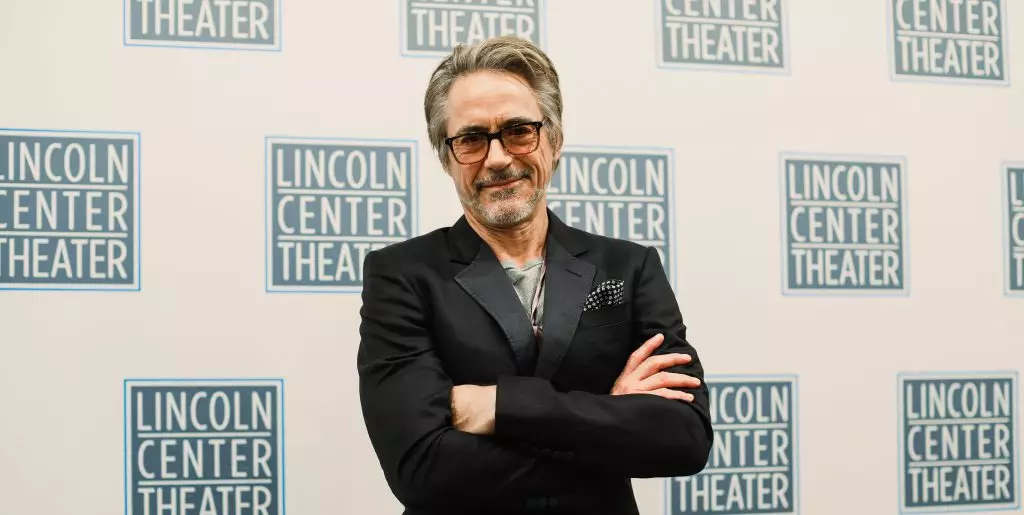In recent years, the advent of generative artificial intelligence has provoked a myriad of discussions regarding its ethical implications, particularly in the entertainment industry. The concern surrounding AI’s ability to replicate human likeness and voice raises questions about authenticity and the sanctity of individual expression. Renowned actor Robert Downey Jr., famous for his role as Iron Man in the Marvel Cinematic Universe (MCU), has emerged as a notable critic of this technological trend. His insights resonate powerfully in today’s era, where AI’s capabilities can easily blur the lines between reality and fabrication.
During a candid conversation on the podcast “On With Kara Swisher,” Downey elaborated on his apprehensions regarding the use of AI to resurrect characters like Tony Stark beyond their narrative arcs. He asserted that while many advancements in technology may seem enticing, they often skirt critical ethical dilemmas that warrant careful consideration. “I have an actual emotional life that’s occurring that doesn’t have a lot of room for that,” he stated, highlighting his reluctance to engage in conversations that distract from genuine human experiences in favor of digital imitations.
Downey’s reticence is unmistakably rooted in a broader skepticism toward generative AI. His position emphasizes that true emotional depth and character complexity cannot simply be replicated by algorithms. His notion suggests that AI-driven reconstructions might lack the authenticity that underpins his performance as Tony Stark—a portrayal that has shaped audiences’ perceptions and emotions for over a decade.
As the discussion progressed, Downey shared his unwavering trust in the current leadership at Marvel Studios, expressing confidence that they would safeguard the essence of his character. However, when faced with the stark reality that future executives may not uphold the same values, he asserted his intention to legally challenge any potential digital misconstruction of his persona. By highlighting this hypothetical legal battle, he cleverly signals a call to action for artists and audiences alike: the need for robust regulations and protections concerning creative ownership in an increasingly digital landscape.
Downey humorously remarked that he would enlist a legal team to protect the integrity of his work long into the future, drawing eye-rolls and laughter from listeners but also inviting deeper contemplation about the implications of AI on legacy and ownership. This comedic touch reveals a serious underlying message— the necessity of safeguarding artistic integrity in a world eager to commodify creativity.
Interestingly, Downey has a vested interest in AI technologies, having invested in companies that harness its potential for innovative purposes. However, he remains critically aware that investment must be accompanied by moral due diligence. In his view, the ethical landscape surrounding AI isn’t merely about technological advancement; it also significantly hinges on the moral compass of the innovators behind it. “Who are the people involved with this?” he questioned, emphasizing the collective responsibility to ensure that advancements contribute positively to society.
By advocating for an ethical framework that emphasizes sound moral psychology and accountability among AI developers, Downey challenges the prevailing cavalier attitudes that often dominate discussions about technology. His nuanced perspective underscores that embracing innovation should not come at the cost of ethical principles; rather, it should marry creativity with accountability.
Currently, Downey is actively involved in a theater production titled “McNeal,” where he portrays a prominent novelist navigating the intersections of AI and creativity. Reviews have been mixed, yet his performance continues to draw commendations for its authenticity. This engagement in a narrative that critically examines AI demonstrates his commitment to exploring the implications of this technology not merely as a subject of entertainment but as a topic ripe for exploration, discussion, and scrutiny.
Robert Downey Jr.’s articulated stance against the mindless replication of his likeness via AI serves as a poignant reminder of the importance of maintaining human authenticity in a rapidly digitizing world. As society hurtles forward into an uncharted technological future, Downey’s insights shine a critical light on the need for ethical considerations and the protection of creative expression. Ultimately, the challenge remains: how can we harness technology while preserving the nuances and depth of the human experience?



Leave a Reply